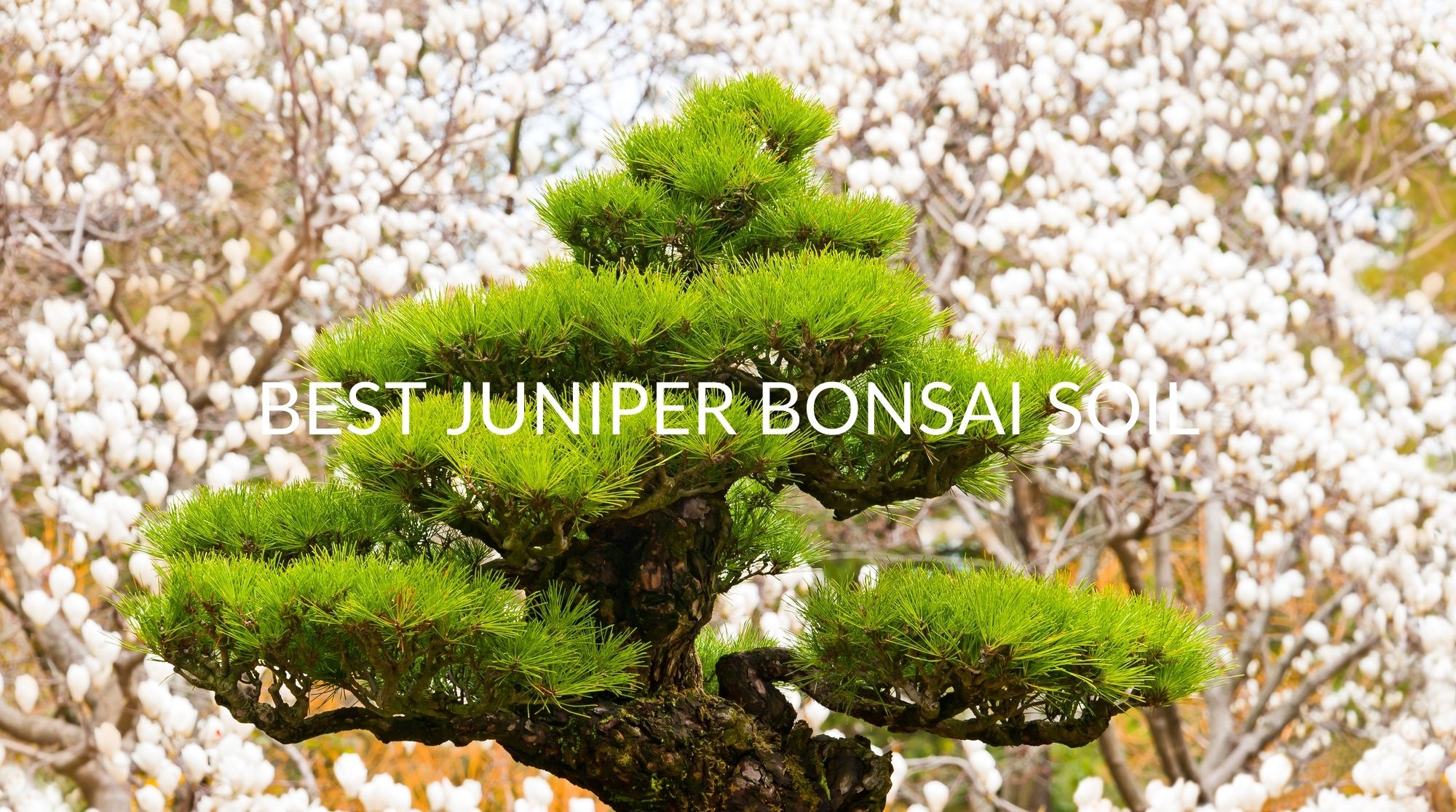A juniper bonsai’s vigor and health depend heavily on using the proper soil. Junipers have specific soil needs that support drainage while retaining some moisture. By understanding what makes an ideal soil mix you can ensure your juniper bonsai thrives.
Soil Properties for Juniper Bonsai
There are a few key properties the soil needs to provide
- Good drainage – Excess water must flow through easily to avoid soggy roots.
- Aeration – Roots require oxygen, so the soil must have air pockets.
- Moderate water retention – The soil should hold some moisture before drying out completely.
- Acidic pH – Junipers prefer slightly acidic soil with a pH of 5.5-6.5.
- Low in nutrients – Too many nutrients can damage juniper roots.
With these ideal soil properties in mind, let’s look at suitable components.
Best Soil Ingredients for Junipers
While single ingredients rarely provide the perfect balance, combining elements creates an optimal growing medium.
Akadama
Akadama is a clay granule made specifically for bonsai. It offers:
- Good water retention
- Stable pH levels
- Slow breakdown of organic matter
Akadama makes up the bulk of quality juniper soil.
Pumice
Pumice is a porous volcanic rock that improves:
- Aeration
- Drainage
It keeps soil loose to prevent compaction.
Lava Rock
Like pumice, lava rock contributes:
- Free drainage
- Air pockets
It provides growing room for juniper roots.
Peat Moss
Peat moss introduces:
- Acidity
- Moisture retention
It also helps bind ingredients together.
Recommended Juniper Soil Mixes
With suitable components identified, here are two excellent soil blends:
Akadama-Pumice-Lava
A commonly recommended mix is:
- 2 parts akadama
- 1 part pumice
- 1 part lava rock
The ratio balances water retention with ample drainage.
Soil-Akadama-Peat
Another good option is:
- 2 parts soil or compost
- 1 part akadama
- 1 part peat moss
The peat increases water holding capacity.
Buying Pre-Made Bonsai Soil
While homemade blends work well, it’s often easiest to purchase commercially prepared bonsai soils. Look for these key traits:
- Mainly inorganic materials like akadama, lava, and pumice
- Minimal fine particles to avoid compaction
- Lack of nutrients to prevent root burning
- Acidic components like peat or pine bark
Quality pre-mixed soils provide proper drainage and aeration right out of the bag.
Avoid Unsuitable Soils
Some soil types will lead to juniper decline. Steer clear of:
- Regular potting soil – Holds too much moisture
- Succulent/cactus mix – Too gritty and fast-draining
- Straight organic compost – Compacts and decomposes
- Soil with added fertilizer – Risks root damage
Stick to specialty bonsai soils or homemade mixes that meet juniper needs.
Soil Testing and Adjustments
Once you’ve selected an appropriate soil, verify it provides the right environment:
- Use a pH meter to test for a slightly acidic level around 6.0.
- Check drainage by watering thoroughly and ensuring excess flows out the bottom.
- Feel for a loose, crumbly texture without thick mud.
Make small additions like lime or peat to adjust as needed.
Refreshing Juniper Bonsai Soil Over Time
When repotting every 2-3 years, replace at least part of the old soil:
- Discard any depleted, compacted soil.
- Mix in 30-50% new soil to replenish.
- Supplement with fertilizer to provide nutrients.
This maintains a living soil with beneficial microorganisms.
A well-draining yet moisture-retentive soil is vital for juniper bonsai health. Follow expert recommendations on blends and components to provide ideal growing conditions. With quality soil and attentive care, your juniper will flourish for many years to come.
Moss is Covering the Trunk Base
Here is a closeup of the trunks:
This moss absorbs a lot of water, and holds that water against the trunk of the tree. It may also prevent water from properly getting to the roots directly below it.
Fix: Remove the Moss
Moss is Used on the Trunk
People often put moss around the trunk of a bonsai tree to “show” it off at an exhibition, but this is usually not a good idea. Moss is added to nurseries to look nice, but it can be bad because it stays wet for a long time.
Greenwood Bonsai – Bonsai Compost Alternatives
FAQ
Which type of soil is best for juniper trees?
What is the best environment for a juniper bonsai tree?
What is the substrate for junipers?
- The Ultimate Guide to Growing Strawberries in Raised Beds - August 8, 2025
- No-Dig Garden Beds: The Easiest Way to Grow a Beautiful Garden - August 6, 2025
- How to Protect and Preserve Wood for Raised Garden Beds - August 6, 2025

